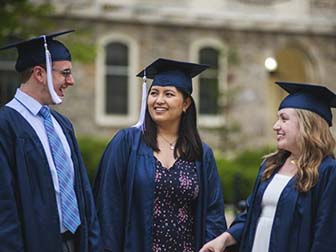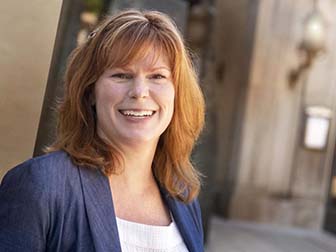UNIVERSITY PARK, Pa. — The Arctic is filled with picturesque scenery and communities of people closely connected to the land and its history. Like many areas of the world, it’s also a region threatened by climate change. But the Arctic is especially vulnerable, with its temperatures rising four times more quickly than in lower latitudes.
Ayse Akyildiz, a doctoral student in Penn State’s College of Agricultural Sciences, recently returned from a research training trip to the Arctic, during which she and the other participants learned more about the region and the complex challenges it faces in a warming world.
The theme of the program — called the International Graduate School on the Emergence of Innovative Blue Economies in the Arctic — is closely tied to Akyildiz’s research, which explores the impacts of climate change on food security and migration of people in the Arctic, and specifically in Alaska.
During the trip, the participants — who came from several institutions and specialize in different disciplines across the Arctic countries — listened to presentations about a range of subjects, including food security, infrastructure, renewable energy and how Inuit life is changing. They also learned and practiced oceanographic sampling techniques and met with Indigenous community members.
In addition to learning new practical skills, Akyildiz said the trip also gave her personal perspectives that she wouldn’t have experienced otherwise doing research in an office.
“I got to see the emotion on people’s faces as they talked about their experiences and struggles — for example, the trauma from being forced into residential schools,” she said. “I got to see the northern lights, feel the mud of the tundra and witness the colonialism of the landscape. It helped me connect to these communities and feel their problems at a very deep emotional level, not just intellectually.”
Guangqing Chi, professor of rural sociology, demography, and public health sciences, said her participation in the program illustrates the educational mission of the Environmental Demography Network (EDeN) — a research group founded by Chi and dedicated to understanding the complex interactions between humans and their environments — and the POLARIS project, a multi-institution effort led by Penn State that is working toward building a resilient and equitable Arctic.
“Our EDeN team, with the transdisciplinary POLARIS project as an example, emphasizes the integration of research with education and community engagement,” Chi said. “Providing students with praxis opportunities — a process in which doing, learning and critical reflection informs each other and collectively become one — is an effective approach to prepare students for tackling the pressing social, environmental and health problems.”



